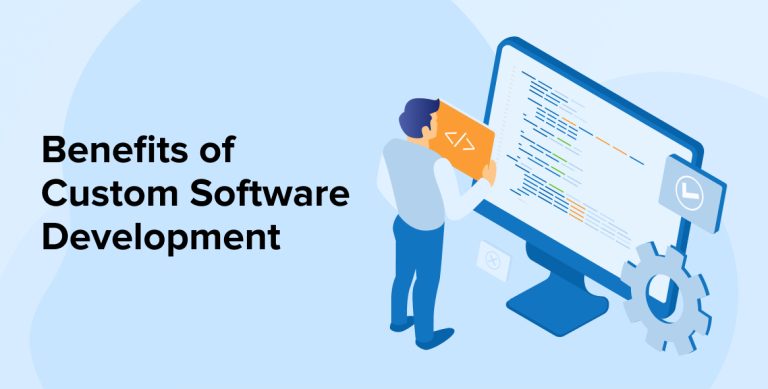Custom Software Development
Overview: At ITegrators, we specialize in custom software development, creating tailored solutions that meet your unique business needs. Our experienced team works closely with you to understand your requirements and deliver high-quality, scalable software solutions.
Key Features:
- Tailored Solutions: Custom software developed to meet your specific business requirements.
- Agile Development: We use agile methodologies to ensure flexible and efficient development processes.
- Quality Assurance: Rigorous testing and quality assurance to deliver reliable and robust solutions.
- Ongoing Support: Continuous support and maintenance to ensure your software runs smoothly.
Benefits:
- Solutions tailored to your business needs
- Improved operational efficiency
- Enhanced user experience
- Scalable and flexible solutions
Why Choose ITegrators? Our expertise in custom software development ensures that you get a solution that perfectly fits your business, driving innovation and growth.
Understanding what custom software is
When addressing the topic of custom software development, it’s essential to realize that the process involves creating a unique software application tailored to solve specific challenges.
This process encompasses multiple stages: research, design, development, testing, maintenance, and support. While “custom software” might conjure thoughts of grand endeavors like building the next tech giant in your garage, the reality is far broader. In fact, custom software ranges anywhere from enterprise-level applications to even a small integration between a data source and an output outlet.
This blog delves into the realm of custom software development, exploring its intricacies and answering why it could be the key that unlocks unparalleled success for your business.

What Is Custom Software Development?
Custom software development can be described as creating software applications designed uniquely to address specific issues that cannot be solved using ready-made options. It’s also important to note that custom software doesn’t always entail grandiose projects; it encompasses everything from full-scale applications to modernization and customization.
Organizations have two main avenues to build custom software: developing the application in-house by hiring developers or partnering with external specialists. Each approach has its merits and drawbacks, with development costs varying widely. But which one is better for most?
In-House vs. Outsourced Development
The choice between in-house and outsourced development hinges on expertise, resources, and cost-effectiveness. In-house development entails hiring a dedicated team of developers to create and support the software. If you’re consistently in need of development resources and need to manage them closely, then building your own in-house development team would make perfect sense.
The advantages of having an in-house custom software development team include:
- You have complete control over the development process, allowing for quick changes and iterations.
- In-house teams have a better understanding of your business needs and can create tailored solutions.
- Sensitive data and intellectual property are managed internally, so you don’t have to worry about the potential breach of confidential intelligence.
On the flip side, the disadvantages of building in-house development teams are:
- Hiring and maintaining a skilled development team, along with overhead costs such as infrastructure, can be expensive.
- Your team’s skill set might be limited compared to specialized agencies. And, to bridge that gap, you’ll have to train your team or hire more expertise continually.
- Developing software in-house can take longer due to recruiting, training, and project management.
On the other hand, outsourcing involves partnering with a software development firm specializing in creating tailored solutions. If you aren’t engaging in development projects on a regular basis and are sporadically building software for your business, then partnering up with an external development company would make the most sense from a time and cost perspective.
The advantages of partnering with an external custom software development agency are:
- Outsourcing can be more budget-friendly, as you avoid hiring and infrastructure costs.
- Access to specialized expertise and experience through external teams or agencies.
- Outsourcing allows you to focus on core business activities while the development is handled externally.
On the other hand, the disadvantages of outsourcing your custom software development project to an agency include the following:
- Remote collaboration can lead to misunderstandings and delays if not managed effectively.
- You rely on the outsourced team for timely updates, which can be risky if the relationship breaks down.
- Sharing sensitive information with third parties may raise security and privacy concerns.
Ultimately, the decision depends on factors like your budget, timeline, project complexity, and the level of control you desire over the development process. So, It’s imperative that you carefully evaluate these factors to determine the best approach for your specific situation.

Custom Software vs. Off-the-Shelf Software
Now, let’s tackle probably the most debated question in this entire article. Are custom software really even necessary, considering the abundance of ready-made solutions out there? To answer this question, we’ll need to dive into the specifics of each and what they individually bring to the table.
Custom software starkly contrasts off-the-shelf software, which is pre-made and lacks customisation. Custom software offers tailored solutions that precisely match an organisation’s needs, enhancing efficiency and effectiveness. Off-the-shelf software, while convenient, might not meet specific requirements. Custom software can also offer enhanced security, as they are designed with specific security measures in mind.
While off-the-shelf software can serve general purposes, custom software addresses a company’s unique needs. Furthermore, if you are facing an issue that cannot be solved with an off-the-shelf solution, then the only option is to build a custom software solution.
The Downside of Ready-Made Solutions
Lack of Tailored Functionality
One of the primary challenges of off-the-shelf software is its inability to accommodate the nuanced needs of individual businesses. Organisations possess distinctive processes, workflows, and objectives that generic software cannot adequately address. Attempting to fit a square peg into a round hole, businesses need help to align their operations with these pre-packaged solutions.
Complexity and Inefficiency
Ironically, the very software intended to simplify operations can sometimes complicate them. The intricate nature of businesses demands efficient software that seamlessly integrates with existing systems. But oftentimes, due to developers having to create unexpected workarounds, off-the-shelf solutions can create inefficiencies, leading to frustration and hindered productivity.
Why Custom Software Can Be Game-Changing

Addressing Unique Operational Needs
The solution to the shortcomings of generic software lies in the realm of customisation. Custom-built software is designed from the ground up, considering the organisation’s specific needs and goals. This tailored approach ensures that every facet of the software aligns with the company’s unique requirements. In short, you are building your ideal software from the ground up. In theory, at least, there’s no way you can go wrong with that.
Creating a Single Source of Truth
One of the most significant challenges businesses face is managing data spread across multiple platforms and systems. Custom software offers a remedy by integrating with various core business technologies and data sources to create a unified and up-to-date database. This “single source of truth” can then become a foundation for accurate analysis and reporting, enabling informed decision-making.
Unleashing the Potential of Customization
Unlike off-the-shelf solutions, custom software embraces the idea of adaptability. Businesses can mould the software to their evolving needs, adding or modifying features as required. This flexibility ensures that the software remains a valuable asset as the business landscape evolves.
Building a Competitive Edge
The impact of custom-built software extends beyond operational efficiency—it becomes a source of competitive advantage. Businesses armed with tailored solutions can swiftly respond to market changes, address customer needs with precision, and innovate faster. This agility sets them apart in a crowded marketplace where generic solutions are predominantly the norm.
Embracing the Future with Tailored Solutions
In an era defined by digital transformation, businesses must be agile and forward-thinking. Embracing custom-built software is not just a strategic move for today; it’s an investment in the future. The ability to adapt, innovate, and optimize operations positions organizations for sustained success.
Optimized Productivity
Crafted from scratch with your business at the forefront, custom software solutions are ideal for addressing organizational objectives. This translates into an accelerated and astute workforce operating harmoniously, wielding real-time business intelligence data effortlessly.
Be it the management of customer relations, the seamless journey of products to delivery, or the invaluable feedback loop from clients, your enterprise has the potential to become a finely tuned mechanism. Vital information is not only accessible but timely and accurate, fostering synchronicity among those in need.
Prioritise Customer Journey
Excellence in customer experience is the ultimate cornerstone of every enterprise. It is the foundation that cements client loyalty and propels word-of-mouth endorsements. The integration of tailor-made software solutions distinctly elevates the interface between you and your customers. Relative to your competitors who might be using generic solutions, building custom software levels up your virtual interface, facilitating better online engagement, streamlined sales processes, improved shipping gateways, and multi-faceted feedback avenues.